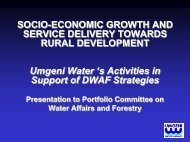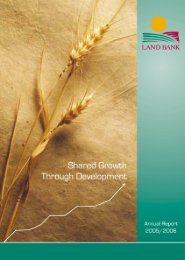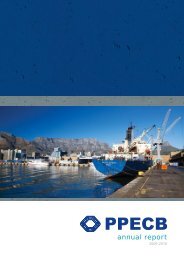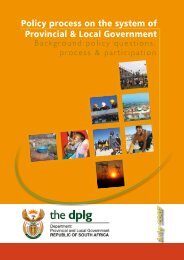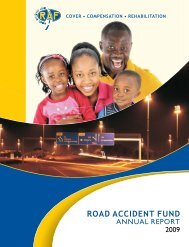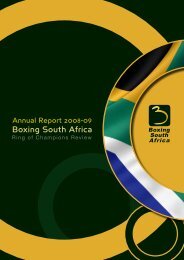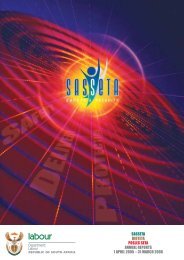Academy of Science South Africa 2005/6 Annual Report
Academy of Science South Africa 2005/6 Annual Report
Academy of Science South Africa 2005/6 Annual Report
- No tags were found...
You also want an ePaper? Increase the reach of your titles
YUMPU automatically turns print PDFs into web optimized ePapers that Google loves.
Executive summaryASSAfScientific thought and activity enrich uspr<strong>of</strong>oundly – promoting science for society(The CHE/HEQC has achieved much in its best-practice guidelines for teaching and learning in higher educationinstitutions, and is currently approaching postgraduate education and associated training in the same manner.Amongst the publication-related aspects <strong>of</strong> the latter, much good would come if all stakeholders emphasised thedesirable and necessary relationship <strong>of</strong> conference presentations and dissertations to peer-reviewed publicationsemanating from the same work or study. A second benefit would come from systematically removing the perceptionthat the (valuable) translation <strong>of</strong> research results into public benefits necessarily means that proper publication <strong>of</strong> thework concerned is not needed or should enjoy much lower priority.)Recommendation No 5That ASSAf be mandated jointly by the Departments <strong>of</strong> Education and <strong>Science</strong> and Technology tocarry out external peer review and associated quality audit <strong>of</strong> all <strong>South</strong> <strong>Africa</strong>n research journals in5-year cycles, probably best done in relation to groups <strong>of</strong> titles sharing a particular broad disciplinaryfocus, in order to make recommendations for improved functioning <strong>of</strong> each journal in the national andinternational system.(A light-touch but robust review and audit system, analogous to the periodic quality assurance reviews <strong>of</strong> thefunctioning <strong>of</strong> higher education institutions now routinely conducted by the Council on Higher Education/HigherEducation Quality Committee, would help greatly to address problem areas and encourage enhanced functioning <strong>of</strong>research journals published in <strong>South</strong> <strong>Africa</strong>. Such functioning would include: quality <strong>of</strong> editorial and review process;fitness <strong>of</strong> purpose; positioning in the global cycle <strong>of</strong> new and old journals listed and indexed in databases; financialsustainability; and scope and size issues. Following on the momentum generated by the activities carried out as part<strong>of</strong> its research journals project and the production <strong>of</strong> this <strong>Report</strong>, the <strong>Academy</strong> <strong>of</strong> <strong>Science</strong> <strong>of</strong> <strong>South</strong> <strong>Africa</strong> would bethe most suitable agency to oversee and be accountable for this work, obtaining system support for the best-practiceguidelines, and appointing review panels and managing their work; some <strong>of</strong> the reviews could be done in respect <strong>of</strong>groups <strong>of</strong> journals with broadly similar focus.)That ASSAf be mandated jointlyby the Departments <strong>of</strong> Educationand <strong>Science</strong> and Technology tocarry out external peer review andassociated quality audit <strong>of</strong> all<strong>South</strong> <strong>Africa</strong>n research journalsin 5-year cycles, probably bestdone in relation to groups <strong>of</strong>titles sharing a particular broaddisciplinary focus, in order to makerecommendations for improvedfunctioning <strong>of</strong> each journal in thenational and international system.<strong>Annual</strong> <strong>Report</strong> <strong>2005</strong>/0695


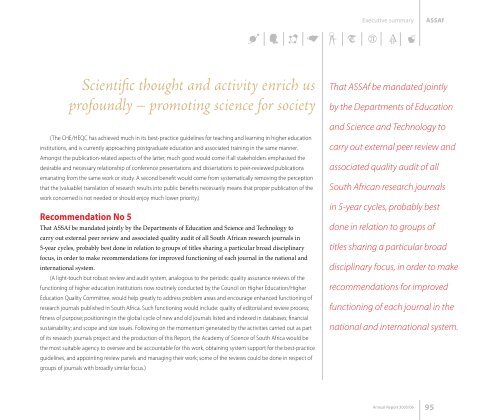
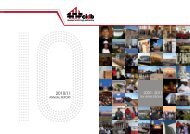
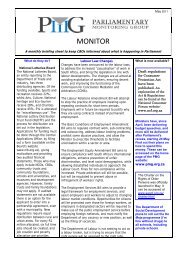
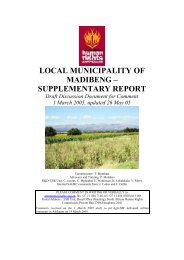
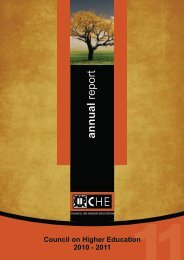
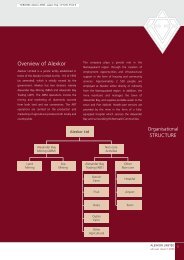
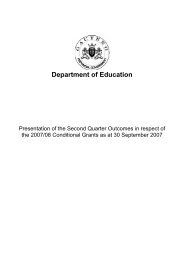
![National Research Foundation Annual Report 2008 / 2009 [Part 2]](https://img.yumpu.com/49774036/1/177x260/national-research-foundation-annual-report-2008-2009-part-2.jpg?quality=85)
